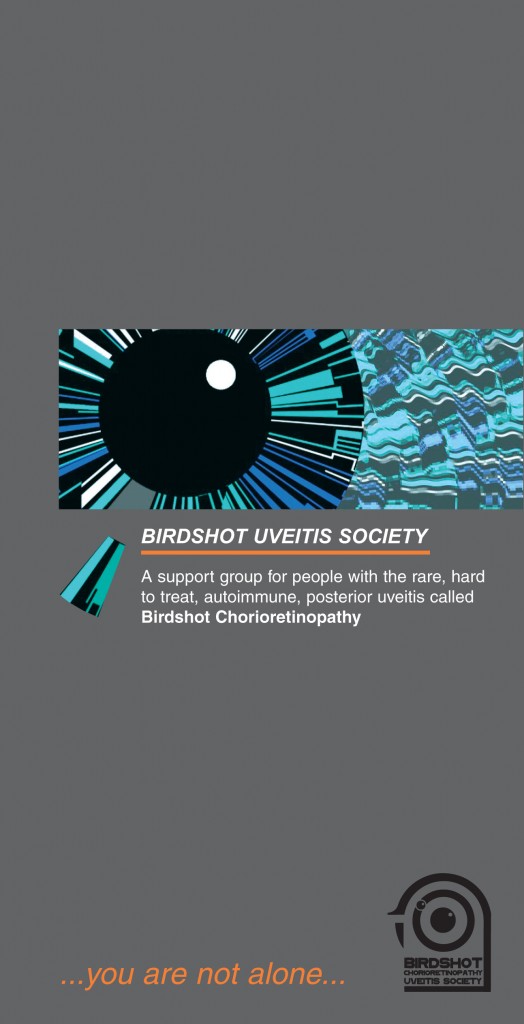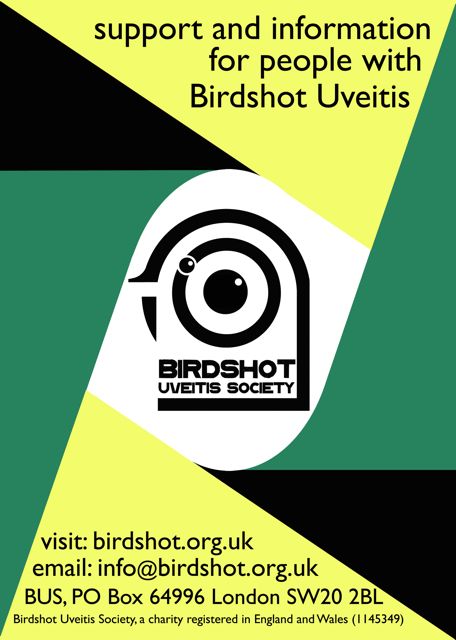This is the 3rd post on the subject of nutrition supplements and eye health from BUS member Nick Bucknall. Here he talks about supplements that he believes are helping his eye health and Birdshot Uveitis. To back up his ideas he provides links to related research papers.
“A balanced diet rich in fresh ingredients should provide most of the vitamins, minerals and trace elements needed for good health. But some of us are getting older or recovering from an illness, or have a natural imbalance, and we also have to deal with the side effects of medication, so if you wish to supplement your diet, here is a list of supplements I have tried and found to be beneficial.
NOTE: The process of extracting the active ingredients from natural sources in order to manufacture dietary supplements may reduce their efficacy so make sure they are as fresh as possible.
Saffron
Saffron is widely used in some parts of the world to treat a variety of eye conditions. I find it gives a rapid improvement, reducing floaters and blurring within hours! It can be added to food as a cooking ingredient or added to tea or coffee. Put a little in the bottom of the cup and soak for a minute or two in hot water before pouring tea. Saffron is expensive but you only need a pinch in each cup – a gram (about £4.50) should last up to 2 weeks.
Here are links to 3 research papers about the benefits of Saffron for the retina – the part of the eye which is damaged by Birdshot.
http://www.ncbi.nlm.nih.gov/pubmed/20688744
http://www.iovs.org/content/49/3/1254.abstract
http://www.ncbi.nlm.nih.gov/pubmed/20951131
Tumeric
Turmeric (Curcumin) is a traditional remedy for uveitis and can either be used as an ingredient in cooking or can be taken in a capsule. It takes a few weeks to produce results but is very cheap.
For research, see http://www.ncbi.nlm.nih.gov/pubmed/18421073 and http://www.ncbi.nlm.nih.gov/pubmed/17569223
Psyllium husk
Psyllium husk is a natural product derived from plantain and is a dried source of fibre which slows digestive transit, protects the stomach lining and improves digestion. It can be taken as a food additive or in a drink – I take it with fruit squash and aloe vera juice. Some anecdotal evidence has suggested that gastric problems may be a trigger for Birdshot and this has also been mentioned by my eye specialist.
Aloe Vera
Aloe Vera juice is another natural anti- inflammatory. As well as helping digestion, it is also good for skin problems, digestive irritation and indigestion, all of which are common side effects of prednislone.
Omega-3 fish oil
Omega-3 fish (EPA) offers a range of benefits including skin, nerve function and is a powerful anti-inflammatory. If you eat oily fish regularly, you should be getting enough of this but taking it as supplement does no harm and may be helpful if you don’t like oily fish! Also, it’s a good source of vitamin D. For research, see: http://www.ncbi.nlm.nih.gov/pubmed/20664801
Glucosamine, Chondroitin & MSM
This anti inflammatory combination is often taken by arthritis sufferers but may also help with other inflammatory conditions like Birdshot. For research, see:http://www.ncbi.nlm.nih.gov/pubmed/18719082
Vitamin D
Recent research has shown vitamin D to be helpful in treating uveitis. We normally ingest it partly through eating the right foods (oily fish, almonds and green vegetables) and partly through sunlight which our bodies convert to vitamin D. It regulates levels of calcium and phosphate in the bloodstream and is closely linked to bone health. Recent research about the benefits of vitamin D for Birdshotters was discussed at the Birdshot Patient’s Day in March, and can their research paper can be found at: http://www.ncbi.nlm.nih.gov/pubmed/22217419
Pycnogenol
Pine bark extract is a powerful anti-inflammatory which has been shown to protect the retina. For research see:
http://www.ncbi.nlm.nih.gov/pubmed/19916788
NB also see comments below.
Benfotiamine
Vitamin B1 has been shown to be helpful in treating uveitis. For research see:
http://www.ncbi.nlm.nih.gov/pubmed?term=benfotiamine%20uveitis
Lutein
Lutein is a caratenoid found in green vegetables and is known to be good for the eyes. For research see
http://www.ncbi.nlm.nih.gov/pubmed/22465791?dopt=Citation
I take all these on a daily basis and feel that the results make it worth the trouble and expense – I have been in remission without any medication for nearly 2 years. But I still pay close attention to my diet – supplements cannot be a substitute for a good diet.

